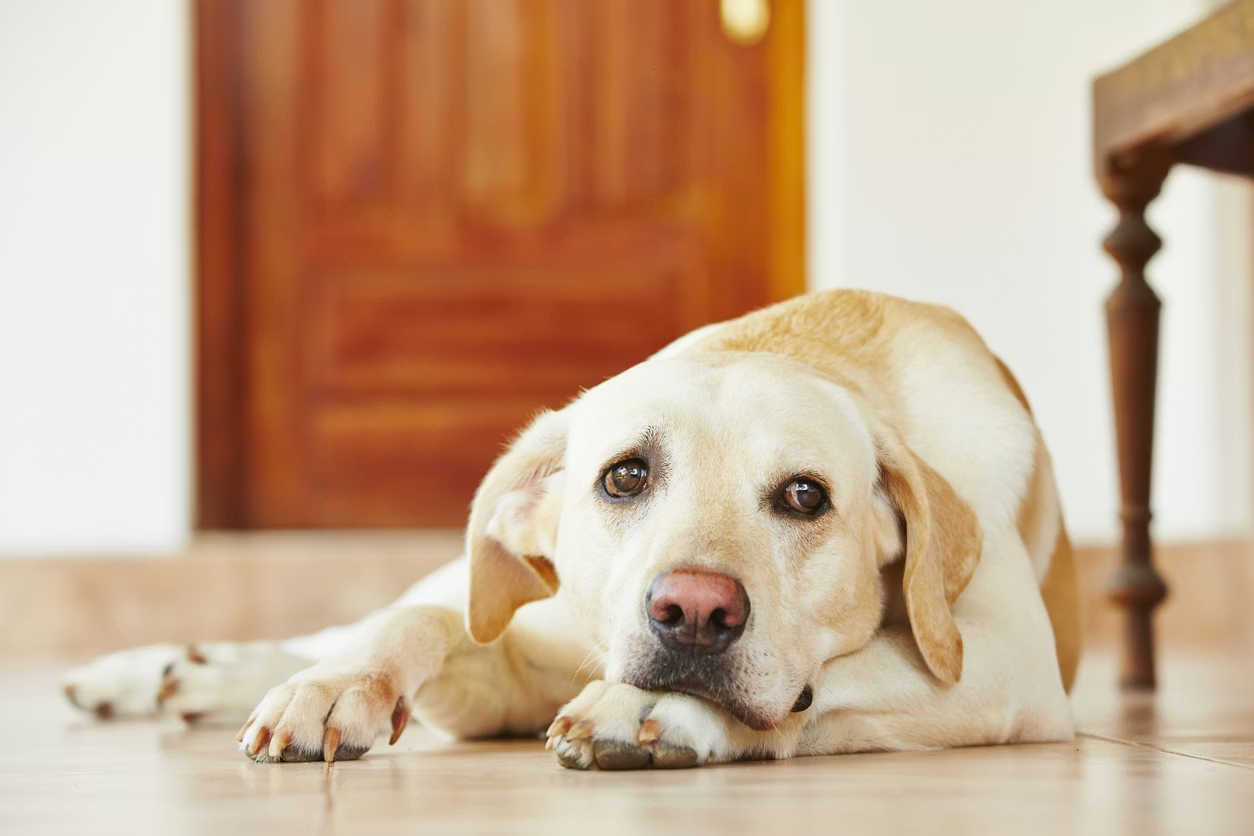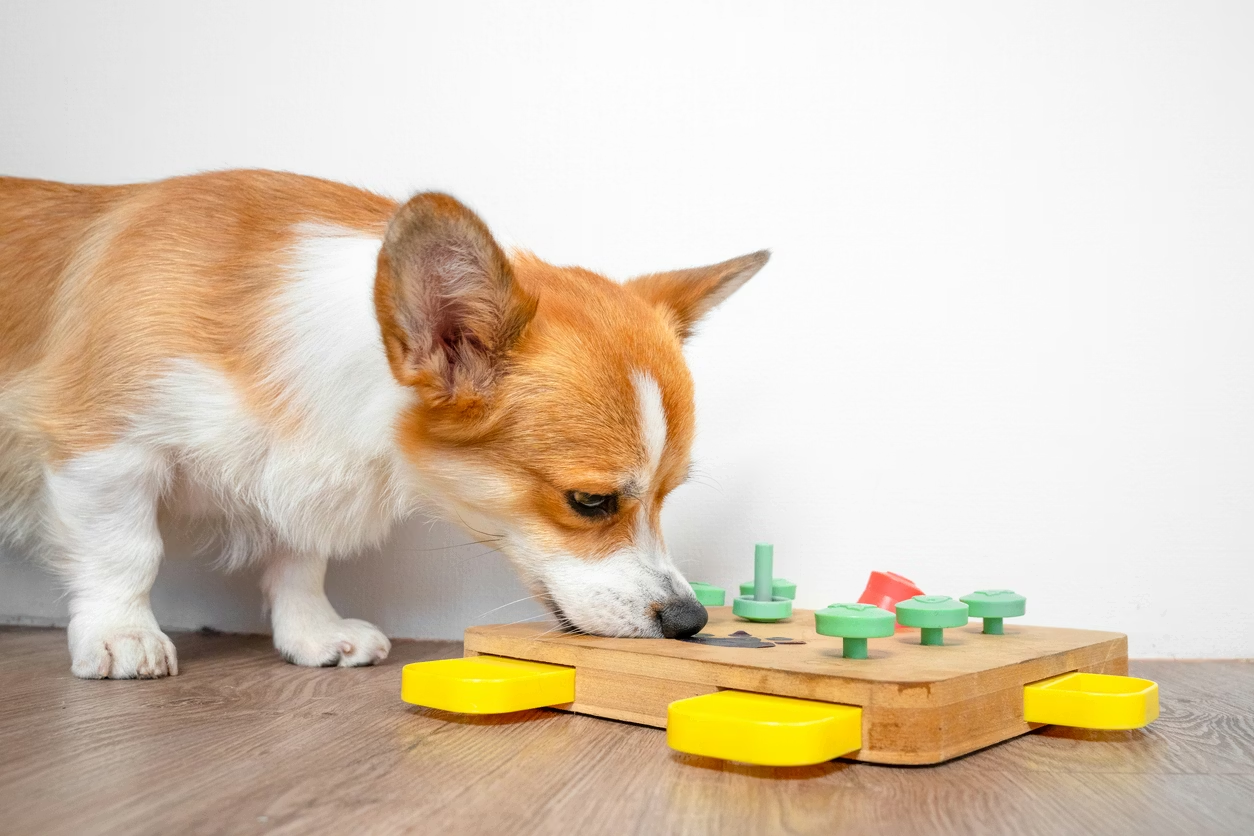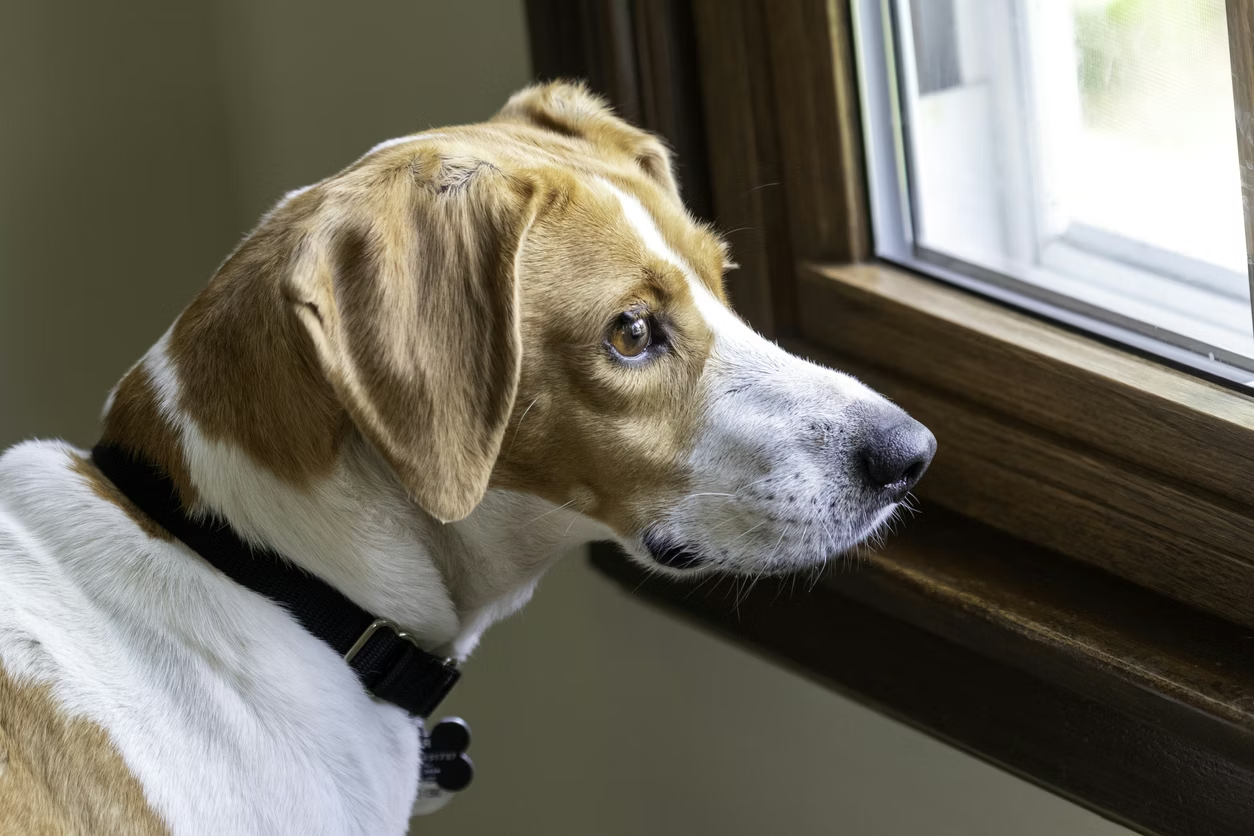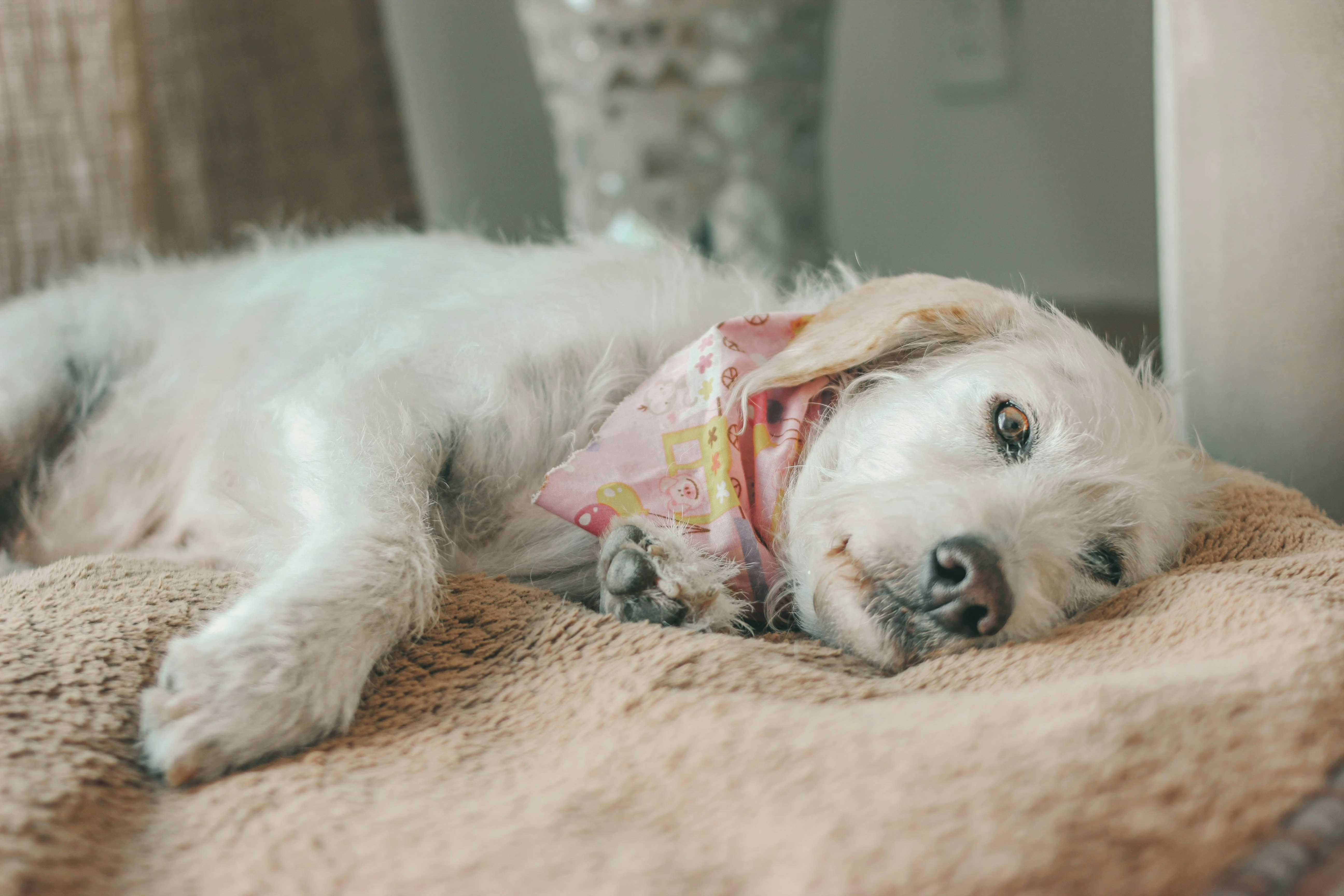What is separation anxiety?
As the name implies, dogs that have separation anxiety experience fear or panic when they are left alone. Often, they will start to show signs of distress when they notice signals that you are getting ready to leave, like putting on your coat or grabbing your car keys. A dog’s reaction to being apart from their human (or other companions) can range from mild to severe.
Signs of separation anxiety
Affected dogs often exhibit the following signs and behaviors:
- Whining, howling, or barking
- Panting, trembling, or drooling
- Lapses in house training (e.g. urinating in the house)
- Destructive behaviors like chewing, digging, or scratching
- Attempts to escape enclosures
Some dogs with separation anxiety will also have an extreme reaction to your return—for example jumping excitedly on you—and may take a long time to calm down after you get home.

What causes separation anxiety in dogs?
There is no definitive cause for separation anxiety. It may be triggered by changes in their life or traumatic events they’ve experienced. Some of the factors believed to contribute to a dog developing this condition include:
- Abuse or neglect
- Extended stays at a shelter, kennel, or unfamiliar location (which can be stressful events for dogs)
- Moving to a new home
- Changes to their "pack" (e.g. family members moving out or passing away)
- Changes to their daily routines
- Changes to their human’s schedules (like a family member transitioning from working at home to working in an office)
Which dog breeds get separation anxiety?
Though any dog can develop separation anxiety, research suggests extremely sociable dogs may be somewhat genetically predisposed to the condition.
For example, German Shepherd Dog, Goldendoodle, and Miniature Schnauzer owners have reported above average frequency of anxious behavior associated with separation. Mixed-breed dogs are also at higher risk, possibly because many mixed-breeds are rescue dogs that may have experienced abandonment or trauma earlier in their life.
Understanding your dog’s ancestry may help you figure out how likely your pup is to develop separation anxiety.

How to treat separation anxiety
If your dog is showing signs of separation anxiety, your first recommended step is a trip to the veterinarian. They’ll be able to examine your dog and rule out any underlying conditions. If separation anxiety is the cause of your pup’s behaviors, they can work with you on a treatment or behavior modification plan to alleviate their distress.
Possible solutions include:
- Providing enough exercise and mental stimulation. A tired dog is more likely to rest when you’re away.
- Turning on music or the TV. Music or TV shows can block outside noises and help your pup relax.
- Creating a safe space. Some dogs try to escape their crates, which can lead to injury. A quiet, enclosed room with a comfy bed and their favorite toys may be a better alternative.
- Using pheromone sprays. Natural pheromones may help calm an anxious pup.
- Using medication. In severe cases, your veterinarian may recommend anti-anxiety medications to provide relief.
Tips for preventing separation anxiety in dogs
It’s preferable for you and your pup to prevent separation anxiety in the first place rather than treat it once the condition develops.
If you’ve added a new dog addition to your home, one thing you can do to keep your pooch from panicking in your absence is to practice spending time apart. Start with short time blocks and increase the amount of time as your dog gets more comfortable. In the beginning, you may try just being in a different room than your dog. As they get used to being alone, you can leave the house for short periods and gradually increase the time away.
Additionally, dogs like structure, so creating routines will help them feel less anxious. Establish a regular schedule for meals, playing, walks, and downtime—then do your best to stick to it.
Final thoughts
It can be difficult to see your pup experiencing distress every time you leave them. The best thing you can do if your dog has separation anxiety is be patient and consistent. It may take time to help your dog feel safe and confident when you’re not home, but the reward will be a happy pup that thrives with you and when they’re on their own.















